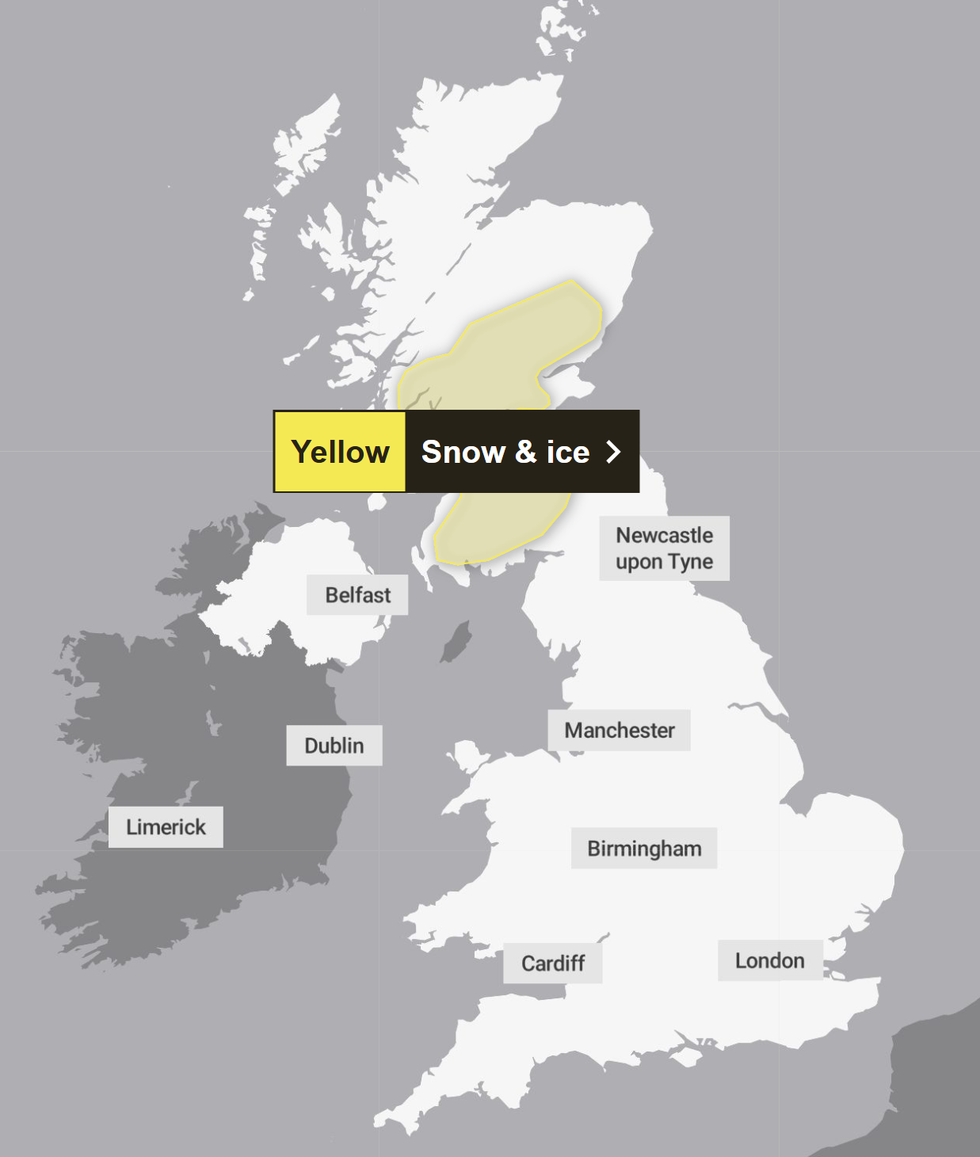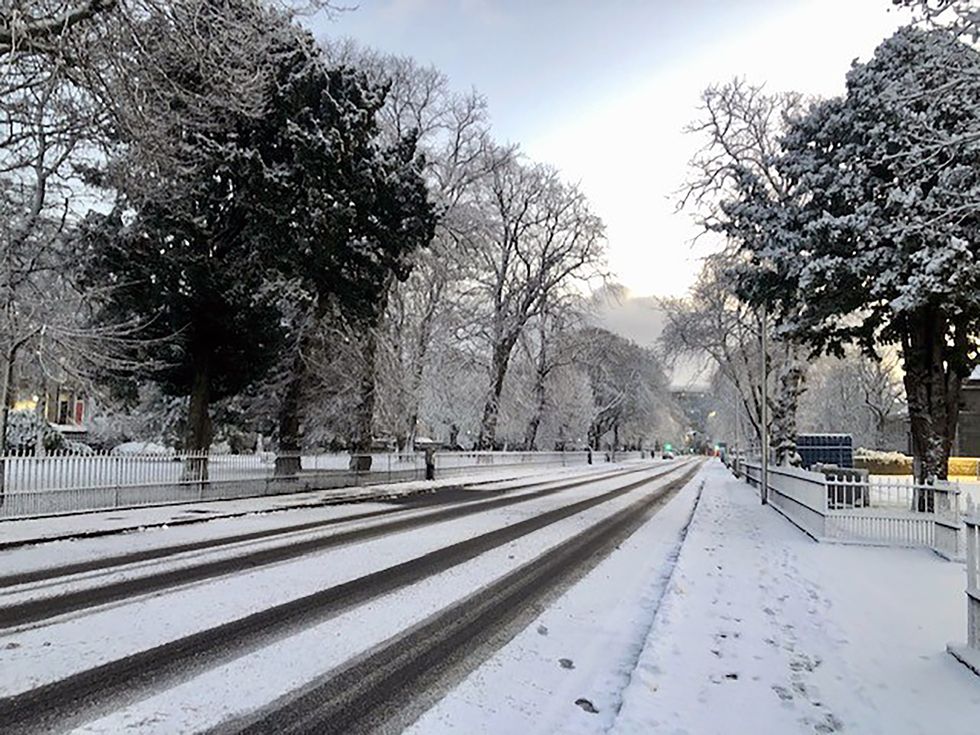Looking to the weather ahead
GB News
Britons have been hit with several travel warnings by the Government agency
Don't Miss
Most Read
Trending on GB News
The Met Office has issued a nine-hour snow and ice warning as Britain prepares to be lashed with freezing rain.
Due to the frosty weather, the forecaster has warned commuters that some roads and train lines might be affected with Britons told to expect longer journeys via road, bus and train - particularly on higher ground.
Icy patches will plague some untreated roads, pavements and cycle paths, which might pose a risk of falling on the slippy surfaces.
The Met Office has issued an official yellow warning of snow and ice for swathes of Scotland from 3am to midday on Tuesday.

The forecaster has warned that "snow flurries will probably turn heavier" for some time which would lead to a covering of snow across Glasgow, Stirling and Perth
Met Office
The forecaster has warned that "snow flurries will probably turn heavier" for some time which would lead to a covering of snow in some regions - including Glasgow, Stirling and Perth.
Freezing rain is more likely to affect the southern part of Scotland which "is likely to cause icy surfaces in a few places" and might cause difficulty for motorists - even on treated roads.
The Met Office has warned that such "snowy, wintry weather" could cause delays and make driving conditions "dangerous".
Although the snow could reach between 0-1cm in lowland areas, regions above 200 metres might face up to 5cm.
LATEST DEVELOPMENTS:
The agency advised that those needing to travel while the weather warning is in place must plan their route and allow extra time to make the journey.
Motorists have been advised to keep essentials in their vehicle in case of delays, including warm clothing, food water, torch, an ice scraper, a warning triangle, high visibility vest and an in-car phone charger.
As well as setting off "at least five minutes earlier than normal", the best way to prevent delays to journey times is checking road conditions if travelling by car, or checking bus and train timetables and making the necessary adjustments".
Central, Tayside and Fife, south west Scotland, the Lothian Borders, Grampian and Strathclyde will be the main regions predominantly affected by the adverse weather conditions.

Central, Tayside and Fife, south west Scotland, the Lothian Borders, Grampian and Strathclyde will be the main regions predominantly affected by the adverse weather conditions
PA
The weather warning has followed expert meteorologists' claiming that Scotland might face the "frozen rain" - which is more of a common phenomenon in North America.
The rain starts as sleet or hail higher up in the atmosphere and melts as it falls through a warmer air layer.
It then refreezes again once it hits a sheet of colder air near the surface.
The rainfall becomes "supercooled" as it falls through these varying temperatures, creating potentially hazardous conditions, particularly on roads and pavements.
Met Office meteorologist Alex Burkill explained the mechanism behind the freezing rain, saying: "We have something a bit warmer coming in, but underneath it closer to the surface, we have some colder air plunging through, and now that's important because it brings the risk of some freezing rain."
"It can cause some very icy conditions and could cause some problems," he warned.







